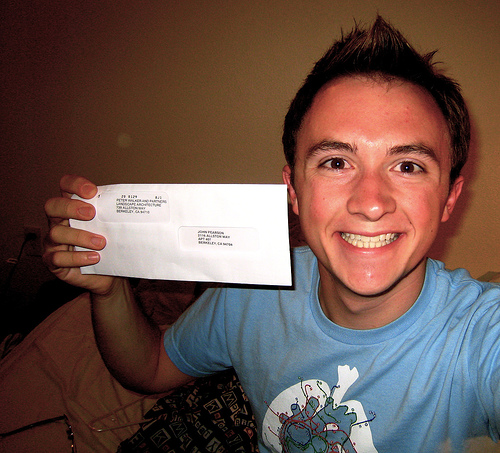California Labor Law: Final Paychecks
Did your employer terminate you and not give you a paycheck? In California, employers must give you your final paycheck, including unpaid or unused vacation time, at the time of discharge. There is no exception to this rule. If an employer does not give you your final paycheck upon termination, a waiting time penalty begins to accrue.
Additionally, if you gave your employer at least 72 hours advance notice that you will be quitting, your employer must give you your final paycheck, including unpaid or unused vacation time, as you are walking out the door on your last day. There is no exception to this rule.
The Division of Labor Standards Enforcement (DLSE) states:
An employee who is discharged must be paid all of his or her wages, including accrued vacation, immediately at the time of termination.
Some employers often come up with some lame excuse for not issuing you a paycheck, like the person handling payroll is out sick, but this is unacceptable according to California law. Don’t be shy about informing your (ex) employer that you are familiar with California labor codes; after all, you won’t be seeing them again, and they can’t retaliate against you. Inform them that if you don’t receive your paycheck immediately that you will be filing a wage claim, to include penalties. You will most likely receive your check right away, and you might even enjoy watching them scurry about in order to get you out the door as soon as possible.

Vacation Time:
First of all, it is extremely important to always make copies of company policies for your reference as proof of an employer’s vacation policies. It is not required, by law, that an employer provide an employee with a paid vacation; however, it is required that an employer follow its policies pertaining to paid vacation time and accrual.
If an employer offers vacation time to its employees, in the state of California it is considered as earned wages. DLSE states:
There is no legal requirement in California that an employer provide its employees with either paid or unpaid vacation time. However, if an employer does have an established policy, practice, or agreement to provide paid vacation, then certain restrictions are placed on the employer as to how it fulfills its obligation to provide vacation pay. Under California law, earned vacation time is considered wages, and vacation time is earned, or vests, as labor is performed.
Additionally, on this page you will see that an employer is unable to inform you that you must “use it or lose it”. This means that it is unlawful for an employer to take away your vacation time for any reason at all. For example, some employers might try to get you to believe that if you don’t use your vacation time by a certain date that it won’t roll over. This isn’t true.
What Are The Penalties?
DLSE will apply a penalty, up to 30 days, equal to your daily rate of pay for each day your money is withheld. The clock starts ticking as soon as your employer informs you that it doesn’t have your final paycheck ready. Make sure you inform your employer that you are aware of this—I can’t count the number of times I have told a friend or a coworker about this and the employer will Fed-Ex a check ASAP—DLSE states (second-to-last paragraph):
An employer who willfully fails to pay any wages due a terminated employee (discharge or quit) in the prescribed time frame may be assessed a waiting time penalty. The waiting time penalty is an amount equal to the employee's daily rate of pay for each day the wages remain unpaid, up to a maximum of thirty (30) calendar days.
Final paycheck laws and the penalties do not apply to any type of disputed wages.
Filing a Claim: DLSE or an Employment Attorney?
If your ex-employer fails to comply with California labor laws pertaining to your final paycheck, you may want to file a claim with DLSE. The link is here for a claim form. Depending on how long your employer withheld your final paycheck and vacation time, it may be worth your while.
However, if your employer violated multiple labor laws or codes during your employment, like failing to pay overtime on a regular basis, taking away your vacation time as a “use it or lose it” policy that is unlawful, not allowing you to take breaks or lunches, or if you feel you were fired illegally due to sexual harassment or discrimination, you may want to look into finding an attorney that specializes in employment law instead of filing a claim with DLSE. DLSE only enforces employer compliance with laws and only assigns a penalty up to 30 days. Employment attorneys seek damages and additional penalties, fines, and interest accruals that are allowed under California labor laws that DLSE will not obtain for you.








